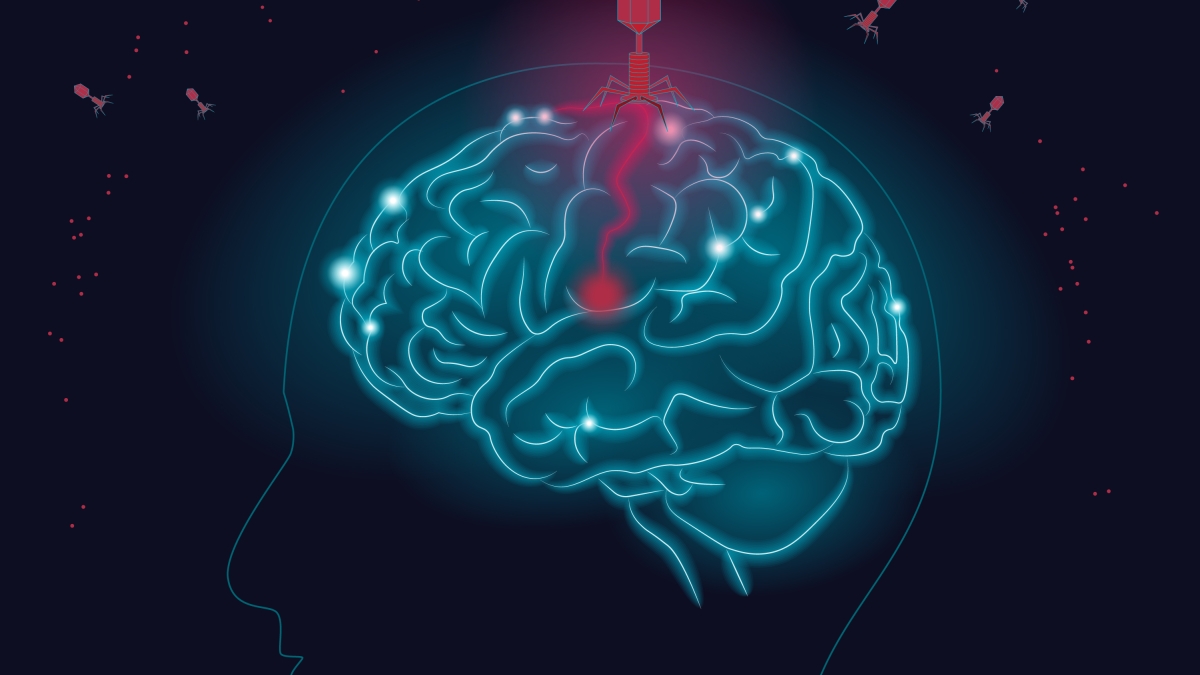NIH foundation features ASU researcher for use of ‘big data’ in discovery of viruses in Alzheimer’s brains

Neuroscience researcher Benjamin Readhead appears along with National Institutes of Health Director Frances S. Collins in a video released by the Foundation for the National Institutes of Health about the Accelerating Medicines Partnership – Alzheimer’s Disease Project (AMP-AD).
Collins said that the AMP-AD partnership is “an effort to bring the best and brightest minds from both the public and the private sector together to find answers, and ultimately, a cure for this condition that so many people are worried about and affected by, and where we really need those answers.”
Readhead and colleagues at the Icahn School of Medicine at Mount Sinai found evidence that viruses may play a role in Alzheimer’s disease.
“We didn’t go looking for viruses, but viruses sort of screamed out at us,” Readhead said. “Although the study found a number of common viruses in normal aging brains, viral abundance of two key herpes viruses was greater in brains stricken with Alzheimer’s.”
Readhead explains that the portal “turned out to be critical to the work we’ve done in three main ways. First, it let us build up a much more complete picture of what the biological context of individual viruses might be within the context of AD. It also let us be very data-driven in our approach. We didn’t need to go in with any particular hypothesis about this virus or that virus. Third, it very rapidly allowed us to replicate our key result, which was an increased abundance of certain human herpes viruses.”
He maintains that this is “absolutely something we could not have done rapidly without the AMP-AD Knowledge Portal.”
The video was central to the partnership convening this week in Bethesda, Maryland, where Alzheimer’s researchers from academia, government, nonprofits and biopharmaceuticals and life sciences companies combined forces to “transform the current model for developing new diagnostics and treatments by jointly identifying and validating promising biological targets of disease.”
Readhead, a researcher in the ASU-Banner Neurodegenerative Disease Research Center at the Biodesign Institute, and an assistant research professor, was featured as an example of successful use of the AMP-AD Knowledge Portal, The AMP-AD Knowledge Portal is a shared distribution site for data, analysis results, analytical methodology and research tools generated through multiple National Institute of Aging supported programs.
Richard J. Hodes, director of the National Institutes of Aging, said, “we’ve already had remarkable examples in which investigators who are not involved in generating AMP-AD data have mined or analyzed those data and came through with very innovative and remarkable, and at times, unexpected findings about what appear to be contributing factors for Alzheimer’s-like dementia.”
More Science and technology

Study reveals genetic insight into desert survival
The deserts of the American Southwest are home to the Mojave and Sonoran desert tortoises, two seemingly similar yet genetically…

Study reveals lasting effects of common weed killer on brain health
Environmental exposure to toxins in the air, water or certain chemicals can increase the risk of ill health effects, including to…

ASU grad to use science to get an edge on crime
Editor’s note: This story is part of a series of profiles of notable fall 2024 graduates.As a child growing up in Pinetop,…